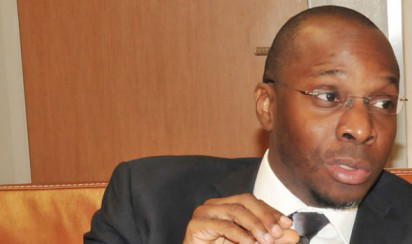
•Dr Yemi Kale
By Emmanuel Elebeke
THE Statistician General of the Federation, Dr. Yemi Kale, says lack of comprehensive and harmonized data for monitoring targets contributed in denying Nigeria most of the Millennium Development Goals by 2015.
Dr. Kale made the assertion during the stakeholders’ workshop on data mapping for Sustainable Development Goals (SDGs), in Abuja
According to the Statistician General, the experience from the MDGs implementation in Nigeria points to critical challenges posed by lack of comprehensive, up-to-date and harmonized data for monitoring progress and success recorded for some of the goals and target.
He said there was no comprehensive data production strategy for monitoring of the MDGs from the onset, adding that the roles and responsibility for who produces what was not properly outlined. He also stated that no appropriate methodologies for computation of indicators were established and that the commensurate funding for data production lacking.
This he said resulted in serious difficulties and challenges midway through implementation of the MDGs process, most especially in ascertaining Nigeria’s status in the process.
Meanwhile, he admitted that Nigeria made progress in achieving some of the goals.
In terms of the ones that were met, he said three or four were met: the boy/girl school ratio, gender parity, infant and maternal mortality among others.
“I can’t categorically say whether we were successful or not because we started tracking four years late. We ought to have had our baseline from the beginning, you have to track what you went through and then track the end but we started tracking half way.
“The development of system of statistics in Nigeria must be enhanced, if we must not have so much gaps in reporting the SDGs.
“Though, Nigeria did the best in terms of tracking the MDGs. It is not important to discuss whether we met them or not but what we are talking about is where we were able to provide timely and quality data to report how far we have gone.
“There was no baseline, now we are setting a baseline from this year.”
As Nigeria prepares to usher in the new sustainable development framework as defined by SDGs, he said there is need to set out a comprehensive, well-defined and coordinated strategy for data production at both national and sub-national levels to effectively track progress towards achieving the proposed goals.
This according to him, is very critical to ensure that everything necessary is put in place to avoid a repeat of some of the challenges experienced during the MDGs implementation, particularly in terms of monitoring and evaluation of the process.
In his remarks, the SDGs consultant, Eteama Henry advised government to ensure adequate advocacy on SDGs for proper implementation and better results,
He also urged government to give widest publicity the new goals, just as he underscored the need for human resource development to address the issue of statisticians.
“We must visit our compendium of statistical data to address the issue of indicators. ICT and office infrastructure should be in place to enable us manage data in a modern way,” he added.
On his part, the representative of the DFID, Dr. Ben Arekpo said the report is very timely, being that it is coming at a time it is required and desired by the nation.
He said the issue of quality data is key for service delivery and for good governance.
According to him, reliable data holds the key to policy formulation, national planning and monitoring.
While pledging the support of DFID, Arekpo said the agency had already started work in two states of the country towards attaining the SDGs in Nigeria.
He however, called for enhancing information resource and closing communication gaps that exist in the implementation process.
The Country Director for the UNDP, Pa Lamin Beyai, also underscored the importance of reliable data in tracking the implementation of the SDGs and urged Nigeria to ensure that it set a baseline for the monitoring and tracking of the SDGs so as to improve on the realization of the set goals.
“MDGs is a product of wide consultations of all stakeholders. This time, we have to think of what and how to monitor progress to achieve better results.”
Continuing, the SG said the importance of the forum was underscored by the fact that it provides a platform for stakeholders to gain a clear understanding of their roles and responsibilities of agencies in-charge of data production in Nigeria, especially as it relates to the monitoring of the proposed Sustainable Development Goals (SDGs).
In addition, he said the forum will help to further strengthen the coordination drive in the statistical production process in the Nigerian Statistical System as well as instill a high sense of ownership and inclusion in their quest to provide government and other users of statistics with adequate, reliable and timely statistical information for informed policy design.
He maintained that a robust and reliable statistical information are needed not only to accurately quantify and communicate the impact of various public policies and programs, but also to ensure that in the spirit of inclusive growth, no individual, social group, segment of society or geographic area is left out.
While calling for general support, the SG said the NBS has set a machinery in place to set a baseline for Nigeria by next years so as to ensure proper tracking of progress on the SDGs.
The Sustainable Development Goals (SDGs) is an international development framework due to be signed by over 140 nations including Nigeria in the coming weeks.
It is the successor development framework to the Millennium Development Goals (MDGs).

Disclaimer
Comments expressed here do not reflect the opinions of Vanguard newspapers or any employee thereof.